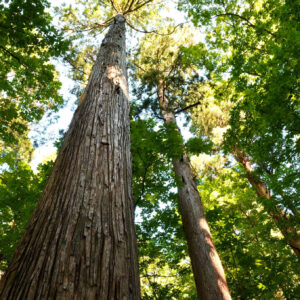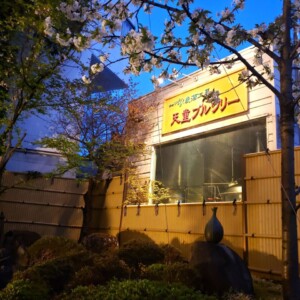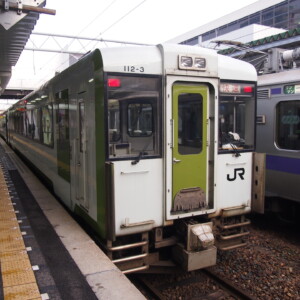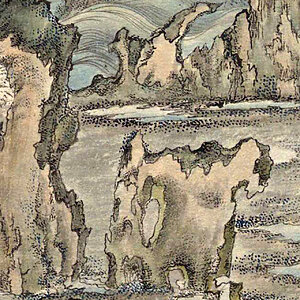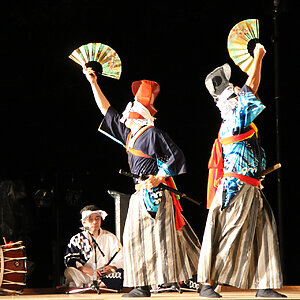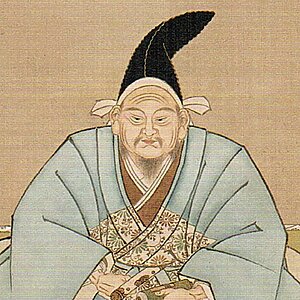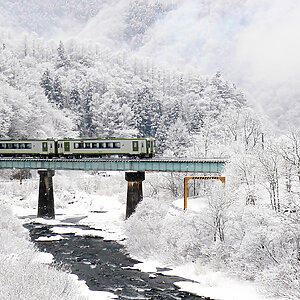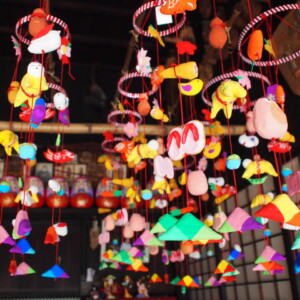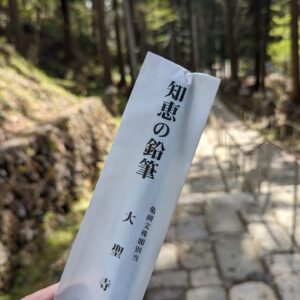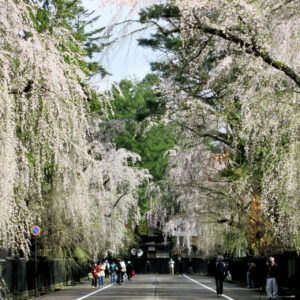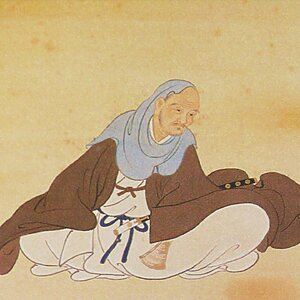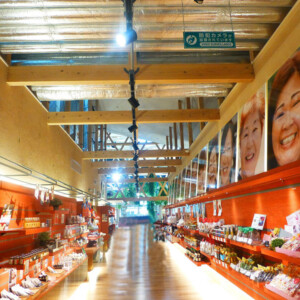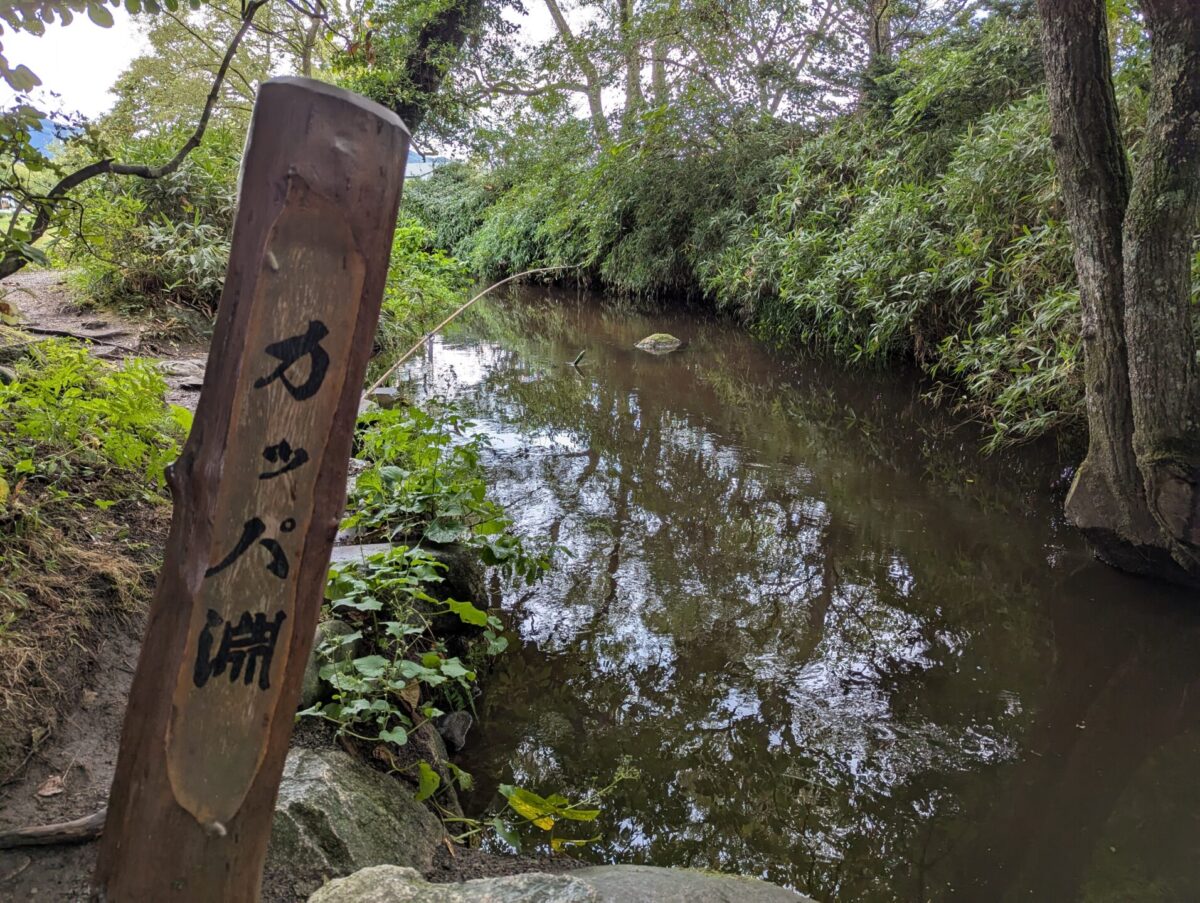
Tono's Yokai Spot "Kappa Pond" - Can you get a kappa fishing permit and go kappa fishing? [Tono City, Iwate Prefecture]
table of contents
Since the publication of "The Tales of Tono" by Kunio Yanagita , the founder of Japanese folklore studies Tono City in Iwate Prefecture has become famous as "hometowns of monsters."
kappa, arguably the most famous monster in Japan there are 14 kappa pools in Tono, where legends of kappa appearing remain
we will introduce the most famous of these Kappa Pools, the Kappa Pool at Jokenji Temple
The entrance to Kappabuchi is located within the grounds of Jokenji Temple
Many places where kappa live appear in Kunio Yanagita's Tono Monogatari, but the most famous of these is Kappa Pond at Jokenji Temple, which attracts many tourists every year in the hope of encountering kappa
Jokenji Temple is a little far from the center of Tono City, but it can be reached in about 10 minutes by bus from Tono Station
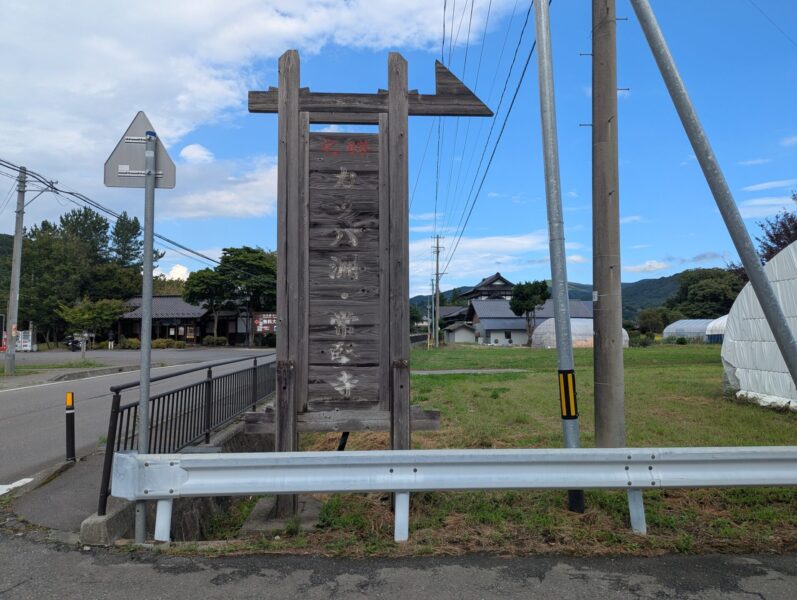
Near Denshoen Garden, where you can purchase a kappa capture permit (described later), is a sign for Kappa Pool and Jokenji Temple. If you go down this narrow path, you will find Kappa Pool
that the parking lot at Jokenji Temple is for parishioners only , and visitors are advised to park their cars at Denshoen Garden and access the temple on foot.
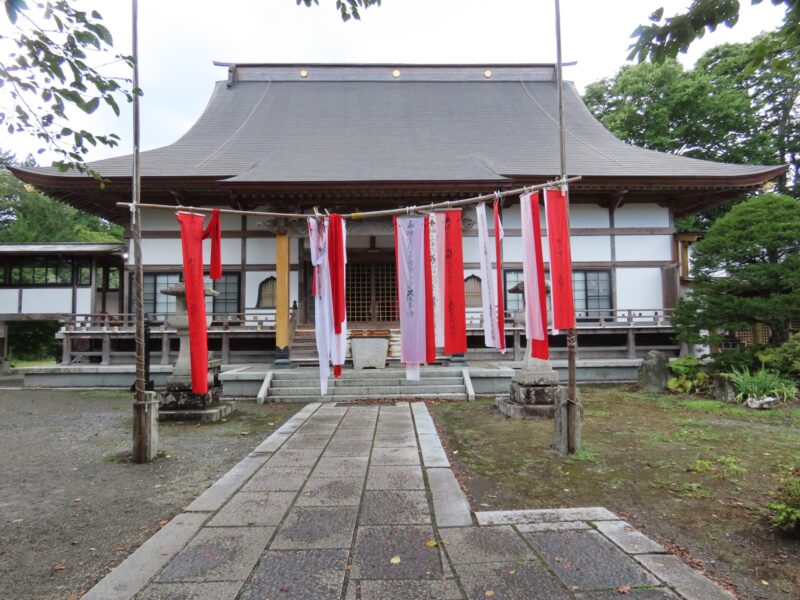
The main hall of Jokenji Temple. Both the gate and the main hall are magnificent. You can access Kappabuchi by entering the temple grounds and going behind the main hall on the left side
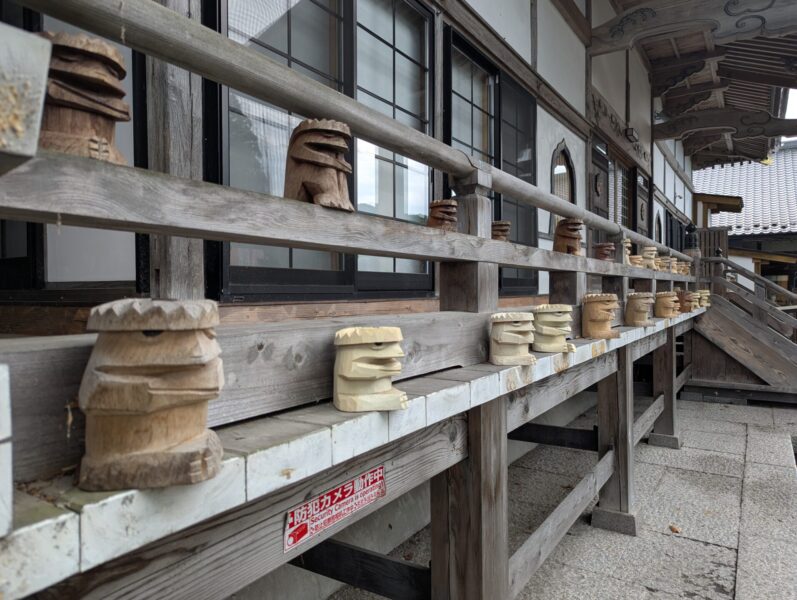
There are many wooden carvings of kappa in the main hall
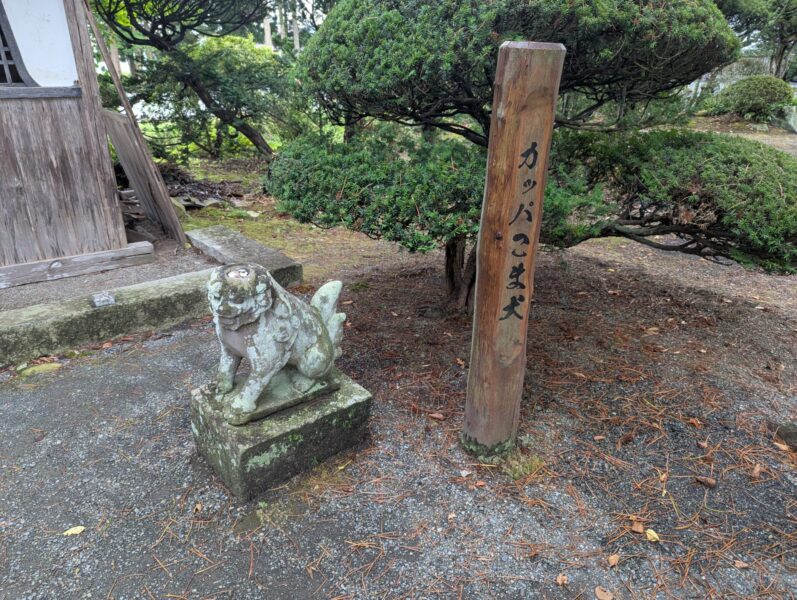
The top of its head is concave like a kappa's plate, and it is called "Kappa Komainu ." It is no wonder that this temple has such a connection to kappa.
In fact, the origin of these Komainu is said to be that when Jokenji Temple caught fire a long time ago, the kappa at Kappabuchi put out the fire, and the head priest at the time began to enshrine them as a token of gratitude
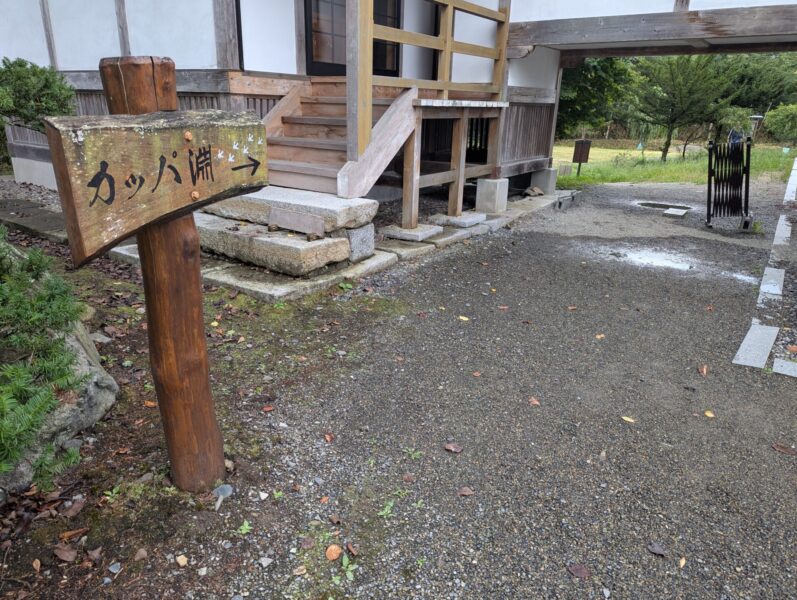
There is a signpost to Kappabuchi next to the main hall, so you shouldn't get lost
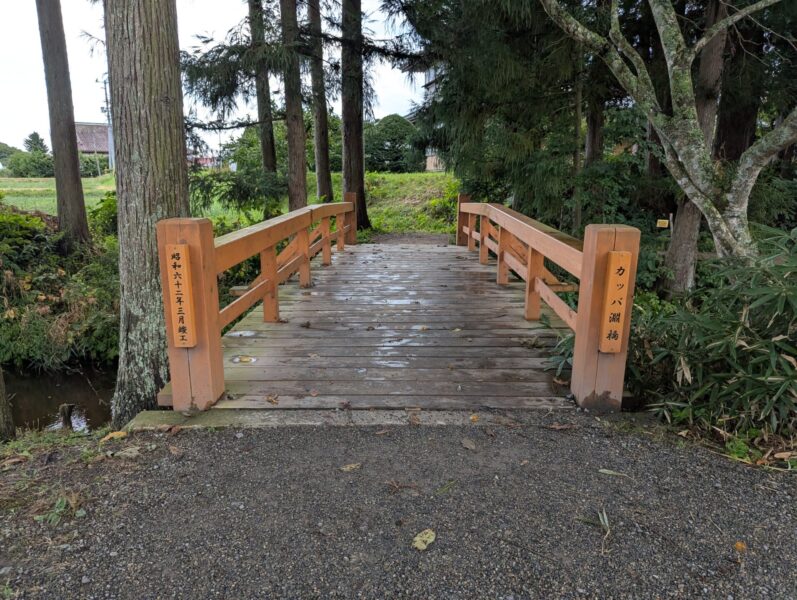
Once you reach the Kogarase River (Kappabuchi), you will see the Kappabuchi Bridge. Once you cross this bridge, you will find a beautiful path along the edge of the river
The river flows slowly, and the rustling sound is soothing to the ears. While sunny days are usually preferred for sightseeing, rain creates a mysterious aura at Kappabuchi, making it seem like you might encounter a kappa
There is a shrine dedicated to the goddess of milk, who is guarded by two kappa
Crossing the bridge and walking a little along Kappa Pool, you will come across a temple on the edge of the pool. This is the "Goddess of Milk," and it is said that if you pray to a pregnant woman for milk to flow, your wish will come true. In front of the temple are two blue kappa statues enshrined like guardian lion dogs.
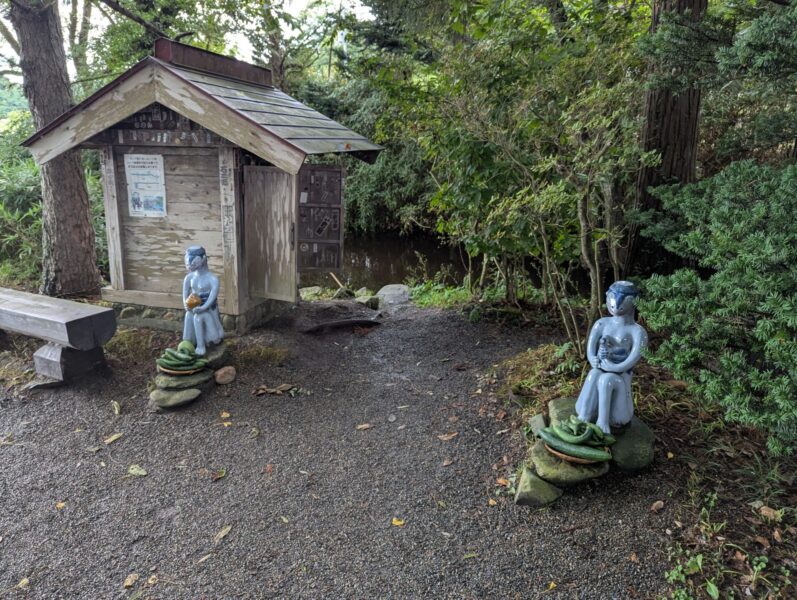
It is customary to make breast shapes out of red cloth and offer them as offerings
Kappa are also said to be the spirits of children who died before they were even born (mizuko), which is probably where this custom originated
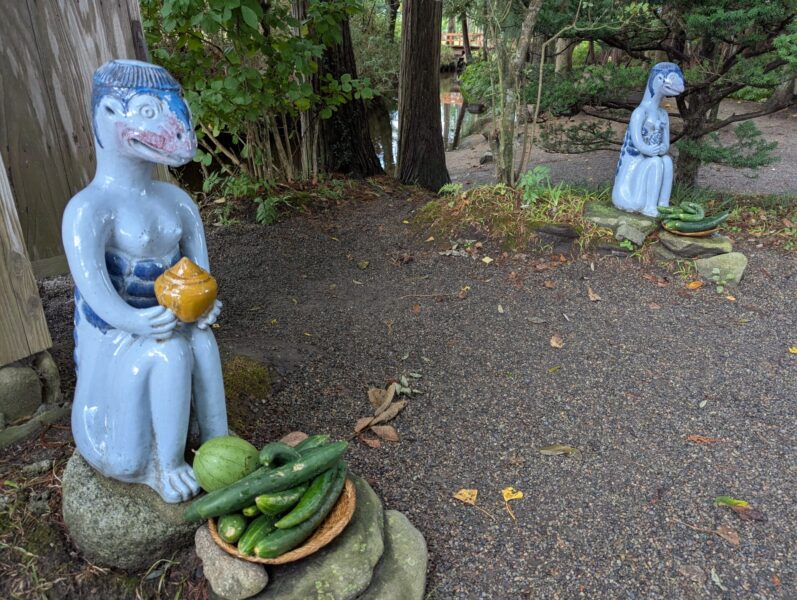
Many cucumbers were offered to the two kappa guarding the hall
Get a permit and go kappa fishing
Near the shrine mentioned above, there are many fishing rods set up with cucumbers tied to the end of the line, specifically for kappa fishing. While it may seem like you can use them freely, there is a sign right next to the rods stating that you need a kappa fishing permit to fish for kappa
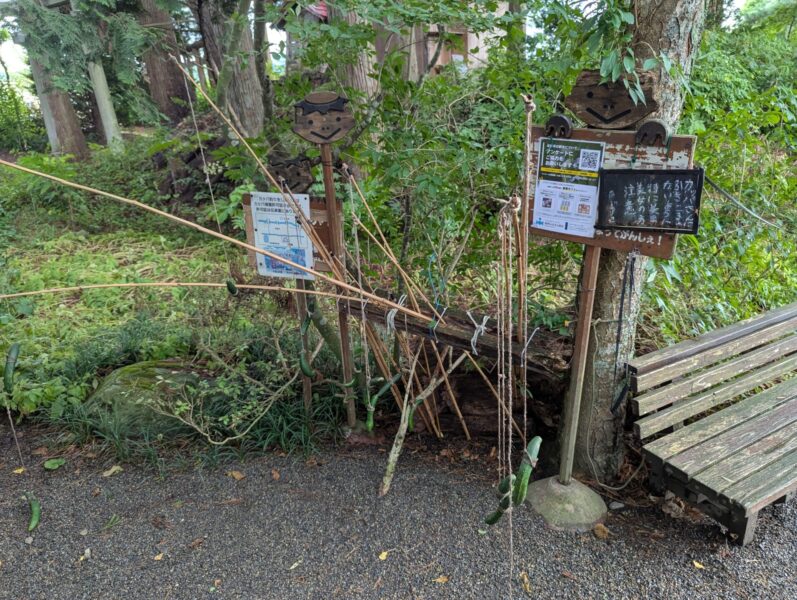
There are several warning signs, including one that says, "Be careful not to get pulled in by the kappa. Beautiful people in particular should be careful." So, beautiful people in particular should be careful when fishing for kappa
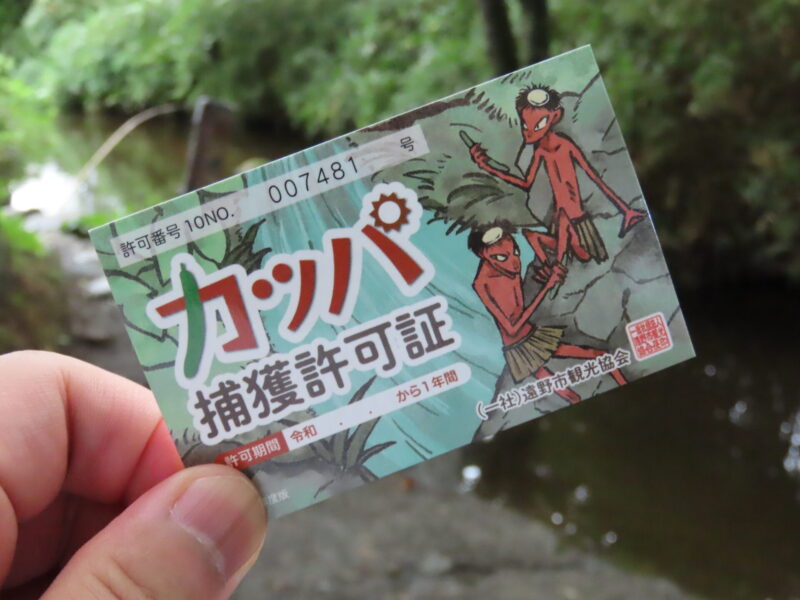
Kappa fishing permits can be purchased at Denshoen Garden near Kappa Pond. With this permit, you can enjoy kappa fishing with a fishing rod
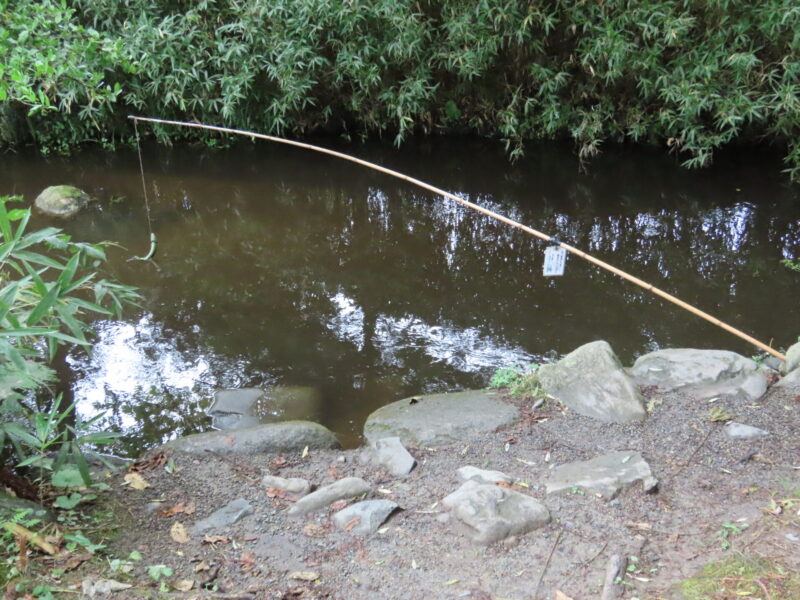
There's also a touching scene where it looks like someone left their fishing rod hanging from the edge of the pond. There's a sign on the fishing rod that says, "For expert use only. Please do not touch."
summary
The area around Kappabuchi is truly filled with kappa, but behind Jokenji Temple there is also a pond called Hasuike, which was created and recreated by volunteers
This pond once stood in this area, but the amount of water in the pool decreased and it eventually disappeared. It was created in the hope that the kappa would one day return and swim around there
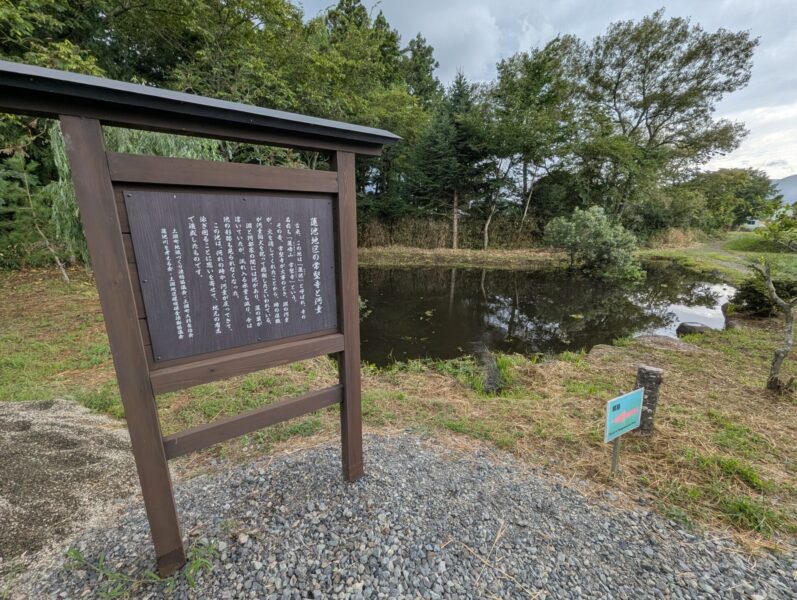
Anyone who encounters a kappa is considered extremely lucky, but even if you don't, it's a spot that you should definitely visit if you come to Tono
By the way, there is a bounty on offer for kappa, and if you capture one and take it to Tono Television...you could win a whopping 10 million yen ! If you're interested, why not give kappa fishing a serious try?
Kappa-buchi <Information>
- Name: Kappabuchi (Jokenji Temple)
- Address: 7 Tsuchibuchicho, Tono City, Iwate Prefecture, 028-0555
- Phone number: 0198-62-1333 (Tono City Tourism Association)
- Official URL: Tono City Tourism Information Site "Tono Time" – Kappabuchi




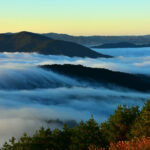
![Sendai City History and Folklore Museum | Rekimin Autumn Festival 2025 Photo Report (October 25, 2025) [Sendai City, Miyagi Prefecture] Ogatsu Hoin Kagura (Ishinomaki City, Miyagi Prefecture) - Rekimin Autumn Festival 2025](https://jp.neft.asia/wp-content/uploads/2025/11/DSC_18262-150x150.jpg)
![The legend of the goddesses of the Tono Sanzan mountains and the place where the three goddesses split up: Kamitsaya Shrine [Tono City, Iwate Prefecture] A stone slab engraved with the three goddesses at Kamitsari Shrine](https://jp.neft.asia/wp-content/uploads/2025/11/PXL_20250903_035539142-150x150.jpg)
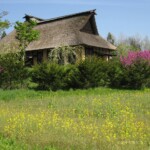
![What is Tsukuishi? A detailed introduction to the mysterious stone depicted in Kunio Yanagita's Tono Monogatari [Tono City, Iwate Prefecture] 23121518_m](https://jp.neft.asia/wp-content/uploads/2022/02/23121518_m-150x150.jpg)
![The "Nambu Magariya" is a unique residence of the Nanbu clan, which was well aware of the importance of horses [Iwate Prefecture] 1906769_m](https://jp.neft.asia/wp-content/uploads/2022/06/1906769_m-150x150.jpg)
!["Place names with 'to' in them" from 1 to 9 [Hachinohe and Kunohe Edition] The mystery of the arrangement where only the positions of 8 and 9 have different patterns Hachinohe Catch](https://jp.neft.asia/wp-content/uploads/2024/07/8737ae4878723e4fc7d713b6aed41d96-150x150.jpg)
![[Tohoku Autumn Leaves Driving Map: Iwate Edition] 3 Recommended Driving Courses and Local Cuisine! Autumn leaves in Hachimantai](https://jp.neft.asia/wp-content/uploads/2024/10/25627275_m-150x150.jpg)
